 The End of the Tour
The End of the Tour
Starring Jason Segel, Jesse Eisenberg, Anna Chlumsky, Ron Livingston, Mamie Gummer, and Joan Cusack
Directed by James Ponsoldt
Rated R
Run Time: 106 minutes
Genre: Drama
Opens August 7th
By Eric Forthun of Cinematic Shadows
James Ponsoldt has quickly evolved into one of the most mature American filmmakers of the 21st century. After breaking out with his challenging romantic drama Smashed, he followed up with the teenage romance The Spectacular Now, which stands as one of the finest embodiments of the complex modernity of teenage romance. Now, he’s made another triumphant picture in the real-life story The End of the Tour, this time opting out of the romantic storyline in favor of a friendship forming between an artist and his observer. Jason Segel gives a performance that will undoubtedly restart his career, even though he didn’t need to do so. He had been an emphatically positive presence in most comedies over the past decade, but his evolution here playing the late David Foster Wallace is simply sublime. He plays the tortured artist as anything but a trope, making him a man both impressed and confused by the world around him. Jesse Eisenberg also continues his run as awkwardly career-driven characters here, proving that he has been typecast perfectly since The Social Network. Ponsoldt’s film is simple in its humor, complex in its drama, and altogether moving.
The film follows Rolling Stone reporter David Lipsky (Jesse Eisenberg), a writer who has recently published his own novel but hasn’t found the success he so desires. One day, he discovers a newly published work called Infinite Jest, a 1000-page-plus epic that’s set in a dystopia involving themes like addiction and recovery, film theory, familial relationships, and advertising. It’s written by David Foster Wallace (Jason Segel), a man that Lipsky and his girlfriend, Sarah (Anna Chlumsky), idolize greatly. Lipsky aspires to learn from Wallace and sets out to interview him after much reluctance from his editor; after all, in all of their years of existence, the magazine had never interviewed an author. Lipsky ends up visiting Wallace on the last five days of his book tour, after which Wallace is both exhausted and left incredulous. They are initially apprehensive about getting to know each other, with Wallace keeping his secrets hidden while Lipsky tries to get both a good interview and make a strong friend. He doesn’t have many of the latter, and the fine line he must walk to bond with Wallace is vital for the success of both of those aspirations.
The delicate balance that Ponsoldt strikes between these characters being friends and merely serving one another to advance their careers is quite extraordinary. It’s one of the underlying themes that never loudly emerges outside of one scene that boils over in a car, a perfect setting for an argument between characters. It traps the tension and forces the moment to happen. Wallace is an altogether fascinating man, and makes for an even better film creation. As the story takes place in 1996, there’s a semblance of what happened to Wallace years before his suicide and what may have been culminating underneath his hippie exterior. There’s a very divided man on the inside: one that enjoys crazy action films but dislikes almost all television, one that complains about most musicians but has an immense infatuation with Alanis Morissette, and one that loves women dearly but has struggled with getting married and having kids. Segel downplays the brilliance of his work. As I was largely unfamiliar with Wallace before the film, he makes the mythic author a mere man with a troubled past and a future set up with numerous creative hurdles. To downsize a man that feels larger than life is a triumph.
But the power of the film lies within Ponsoldt’s directing and Marguiles' writing. Their scenes are often long and full of dialogue, as the characters probe one another and wait for the other to lower their guard. Both of the Davids in the story (for which the namesake is simply too fitting considering how connected the two of them grow over the film) are doing their jobs but need human affection. Their conversations demonstrate that, as they are mostly fluid and relatively unsure of their direction; by the conversations' conclusion, however, we leave each scene feeling rewarded. The two men are painted in portraits that feel altogether comforting and understanding, for we're not meant to idolize either person, but simply understand them. Wallace isn't shown as a helpless drug addict like some see, nor are there moments where his upbringing is questioned as to whether it led to his suicide. The world around him is simply changing, and he feels that people are less ambitious and unsure of how they want to spend their valuable time on Earth. Segel and his co-star Eisenberg capture that feeling perfectly, and make The End of the Tour one of the year's best films.

 Ricki and The Flash
Ricki and The Flash
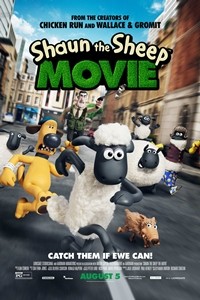 Shaun the Sheep – by
Shaun the Sheep – by  Fantastic Four
Fantastic Four
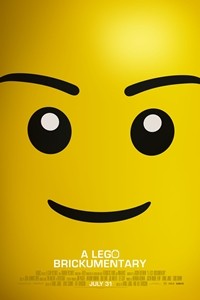 A LEGO Brickumentary
A LEGO Brickumentary
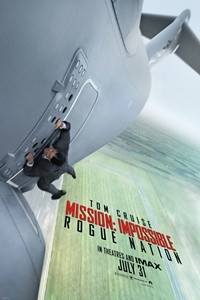 Mission Impossible: Rogue Nation
Mission Impossible: Rogue Nation
 Vacation
Vacation
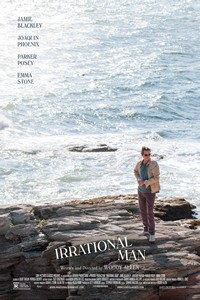 Irrational Man
Irrational Man
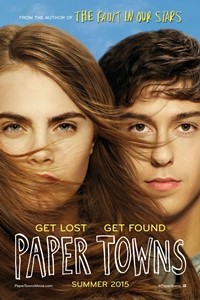 Paper Towns
Paper Towns
 Trainwreck
Trainwreck
 Ant-Man
Ant-Man
 Amy
Amy
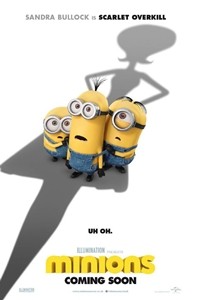 Minions
Minions
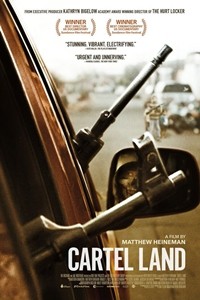 Cartel Land
Cartel Land
 Self/less
Self/less








